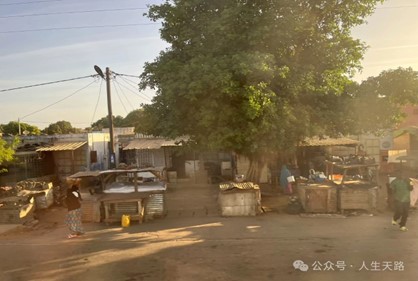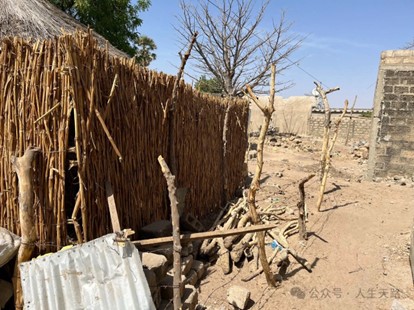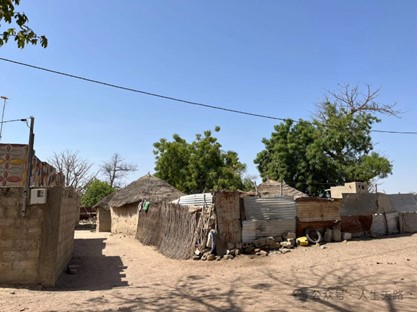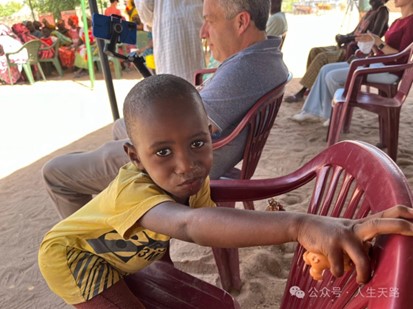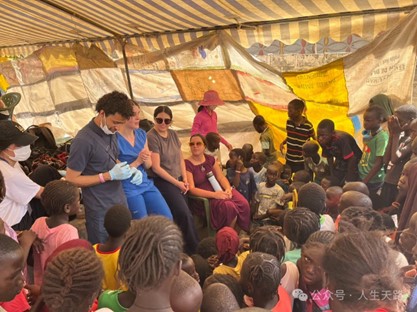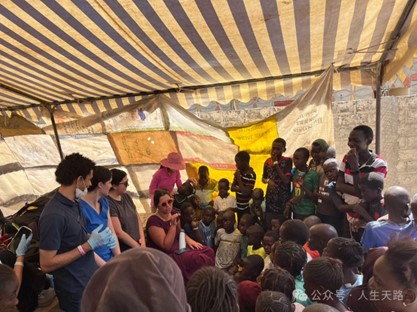Today, the Africa Cries Out medical team drove three hours to a village. Please allow me to share the service work of our medical team and youth volunteers. There are too many gifted brothers and sisters and talented friends who will also be reporting, so I will not be writing about specific medical or scientific stories. Let me just tell you about what I have observed on what the medical team do, and about the customs, culture, and traditions here.
We saw many half-built houses on the roadside, which seemed to be abandoned without any further construction. The bricks they used seemed to easily break if touched. As I was told buy a local, these houses are half built because once the government grant you a land, you have to build a house or any structures there within three years, otherwise, the land will be taken back by the government. And since not a lot of people have the money or the resources to finish their houses, they are left unfinished.
There are only two seasons in Senegal: the rainy season and the dry season. March is the dry season. The weather is so dry and hot that people can’t do much work. Everyone seems to just be idling around, hence all these people on the streets who seems to be doing nothing.
 Senegal street scene taken from the bus window.
Senegal street scene taken from the bus window.
Senegalese people also purposely plant trees, and you can see a lot of saplings that have been specially protected. There are always people under the big trees enjoying the shade.
The baobab trees that we see on the Internet are beautiful and special, but the actual trees that we see here aren’t as nice. The fruits on the tree appear to be big mice hanging.
The village’s huts are as small as mice houses.
When the medical team got off the bus at their destination, we saw an old woman walking with difficulty. She had no toes. Dr. Liu told us that those were the feet of lepers. Another doctor also told me about this other patient who has a wound on his foot, but due to poor sanitary conditions, the wound never healed and became chronic. If no measures are taken, the infection might reach the bones which might lead to amputating the patient’s foot. The infection might even get into the blood stream and cause sepsis – an overwhelming infection all over the body that can be very dangerous and fatal. In Senegal, because the poor people do not have shoes and walk barefoot every day, many people have no arches on their feet, and the situation is very bad. There are also many people who have minor foot problems that turn into major problems due to lack of resources for medical treatments.
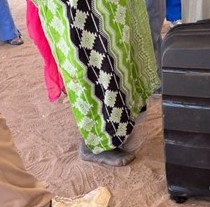 The toeless patient.
The toeless patient.
In this village, not every child can go to school, and those that go to school can only afford up to the fifth grade at most. School ends at one o’clock every day, so from noon on, more and more children gather around us. While the doctors were busy attending to consultations, the children would approach us curiously, take our water bottles, and explore our backpacks.
A young lady from the Africa Cries Out Medical Team gave her own cross necklace to a little girl and put it on her neck.
 The little girl was filled with joy.
The little girl was filled with joy.
We have these volunteer brothers and sisters from Brazil that are full of love for the children. When there are many children, they tell them stories and since the children is not familiar with Brazilian language, the brothers and sisters just act what they want to say. The children all followed in unison. The brothers and sisters were probably teaching the children to pray because in the end, I heard the children say “Amen”!
We finished the day’s free clinic and when we gathered up and got on the air-conditioned bus, the children were standing at the door of the bus. They couldn’t get on the bus and could only look at us from a distance. We knew that when we got on the bus, we would return to the base of Africa Cries Out, where we could take a hot bath and have delicious meals waiting for us. In a few days, we will return to our comfortable homes, far away from this place… Lord, we are grateful for those volunteers who are willing to come to Senegal to preach the gospel and provide medical assistance. We also pray that through all the volunteers’ hard work, you will continue to change this place, make their lives better, so the children can go to school, and have the gospel preached to them!
Dear friends, just as we leave this village today, one day we will also leave this world. All are from the dust, and all return to dust, but where will our souls go? By making an impact to change these poor people’s lives for the better, we can have some assurance and hope in our hearts on where our souls will be. So please take heed and join us in impacting the lives of our brothers and sisters here in Senegal.
If you feel moved to support our ministry in Africa, please contact us:
Jun Xu’s WeChat ID: jun9174343767
电子邮件:Africacriesout@gmail.com
Public WeChat ID: LifeExploring
Web page: https://africacriesout.net
Editor in charge: Juanjuan Cao
Translator: Silvia. R
English editor: Xi Wang
Editor: Doris Cruz



